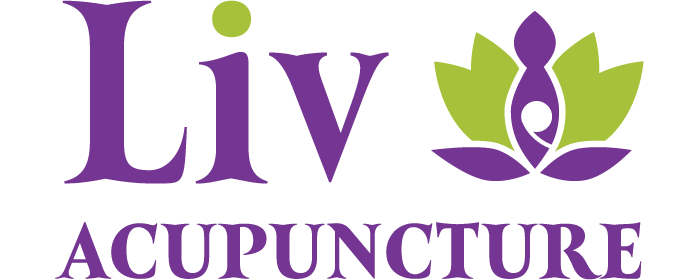What Is Fertility Treatment?
Fertility treatment refers to the medical assistance provided to individuals or couples who are struggling to conceive naturally. With advancements in modern medicine, there are now many options to help people overcome infertility challenges. Fertility treatments can vary depending on the underlying cause of infertility and may involve medications, procedures, or lifestyle changes.
This blog will guide you through what fertility treatment entails, the options available, and how it might help you on your journey to parenthood.
Understanding Fertility
Before diving into treatments, it’s important to understand what fertility means. Fertility is the natural ability to conceive a child. However, infertility, which affects about 1 in 8 couples, is defined as the inability to conceive after 12 months of trying (or 6 months for women over 35). Both men and women can experience fertility challenges, and treatments are designed to address these issues.
Common Causes of Infertility
Infertility can occur due to various reasons, including:
- Hormonal Imbalances: Issues with hormones can affect ovulation in women and sperm production in men.
- Age: Fertility declines with age, especially in women after the age of 35.
- Physical Problems: Blocked fallopian tubes, endometriosis, or low sperm count can hinder conception.
- Lifestyle Factors: Smoking, stress, poor diet, and being over- or underweight can impact fertility.
- Unexplained Infertility: In some cases, the cause of infertility cannot be identified.
Types of Fertility Treatment
Fertility treatments are tailored to each individual’s or couple’s needs. Here are some common options:
Lifestyle Changes
For some, small lifestyle adjustments can significantly improve fertility. This may include:
- Maintaining a healthy weight
- Reducing stress
- Stopping smoking
- Eating a balanced diet
Medications
Certain medications can help regulate ovulation or improve sperm production. These include:
- Clomiphene citrate (Clomid): Helps stimulate ovulation in women.
- Gonadotropins: Hormones that encourage the ovaries to release eggs.
- Metformin: Often used to address insulin resistance in women with PCOS.
Intrauterine Insemination (IUI)
In IUI, sperm is placed directly into the uterus during ovulation, increasing the chances of fertilization. This procedure is less invasive and often used for mild infertility cases.
In Vitro Fertilization (IVF)
IVF is one of the most well-known fertility treatments. It involves several steps:
- Stimulating the ovaries to produce multiple eggs.
- Retrieving the eggs and fertilizing them with sperm in a lab.
- Transferring the resulting embryos into the uterus.
IVF has helped millions of couples conceive, but it can be expensive and emotionally demanding.
Egg or Sperm Donation
For individuals or couples who cannot use their own eggs or sperm, donor options are available. The donated eggs or sperm are used in treatments like IVF or IUI.
Surgical Interventions
In some cases, surgery may be needed to address issues like blocked fallopian tubes, fibroids, or varicoceles (in men).
Acupuncture and Holistic Therapies
Many people turn to acupuncture and other holistic approaches as complementary treatments. Acupuncture can help reduce stress, improve blood flow to reproductive organs, and balance hormones.
How Does Fertility Treatment Work?
Each fertility treatment follows a specific process:
- Initial Consultation
Your fertility specialist will review your medical history and run tests to identify potential causes of infertility. - Diagnosis
Common tests include hormone level checks, ultrasounds, and semen analysis. - Treatment Plan
Based on your diagnosis, your doctor will recommend a treatment plan tailored to your needs. - Follow-Up
Throughout the treatment process, regular follow-ups will track progress and make necessary adjustments.
Emotional Support During Fertility Treatment
Fertility treatments can be physically and emotionally challenging. It’s important to:
- Communicate openly with your partner.
- Seek support from friends, family, or support groups.
- Consider talking to a counselor or therapist specializing in fertility issues.
When to Seek Help
If you’ve been trying to conceive for more than a year (or 6 months if you’re over 35), it’s a good idea to consult a fertility specialist. Early intervention can increase your chances of success and help you understand your options.
Why Choose LIV Acupuncture for Fertility Treatment?
At LIV Acupuncture, we specialize in holistic approaches to fertility. Our experienced practitioners combine the ancient art of acupuncture with modern fertility insights to help balance your body and improve your chances of conception. Whether you’re looking to complement medical treatments like IVF or prefer a natural approach, we’re here to support you every step of the way.
Conclusion
Fertility treatment is a journey that requires patience, understanding, and the right support. With so many options available, it’s possible to find a treatment plan that works for your unique situation. At LIV Acupuncture, we’re dedicated to helping you achieve your dream of starting or growing your family.
If you’re ready to take the next step, contact us today to schedule a consultation and learn how we can help on your path to parenthood, (201) 261-3900.
